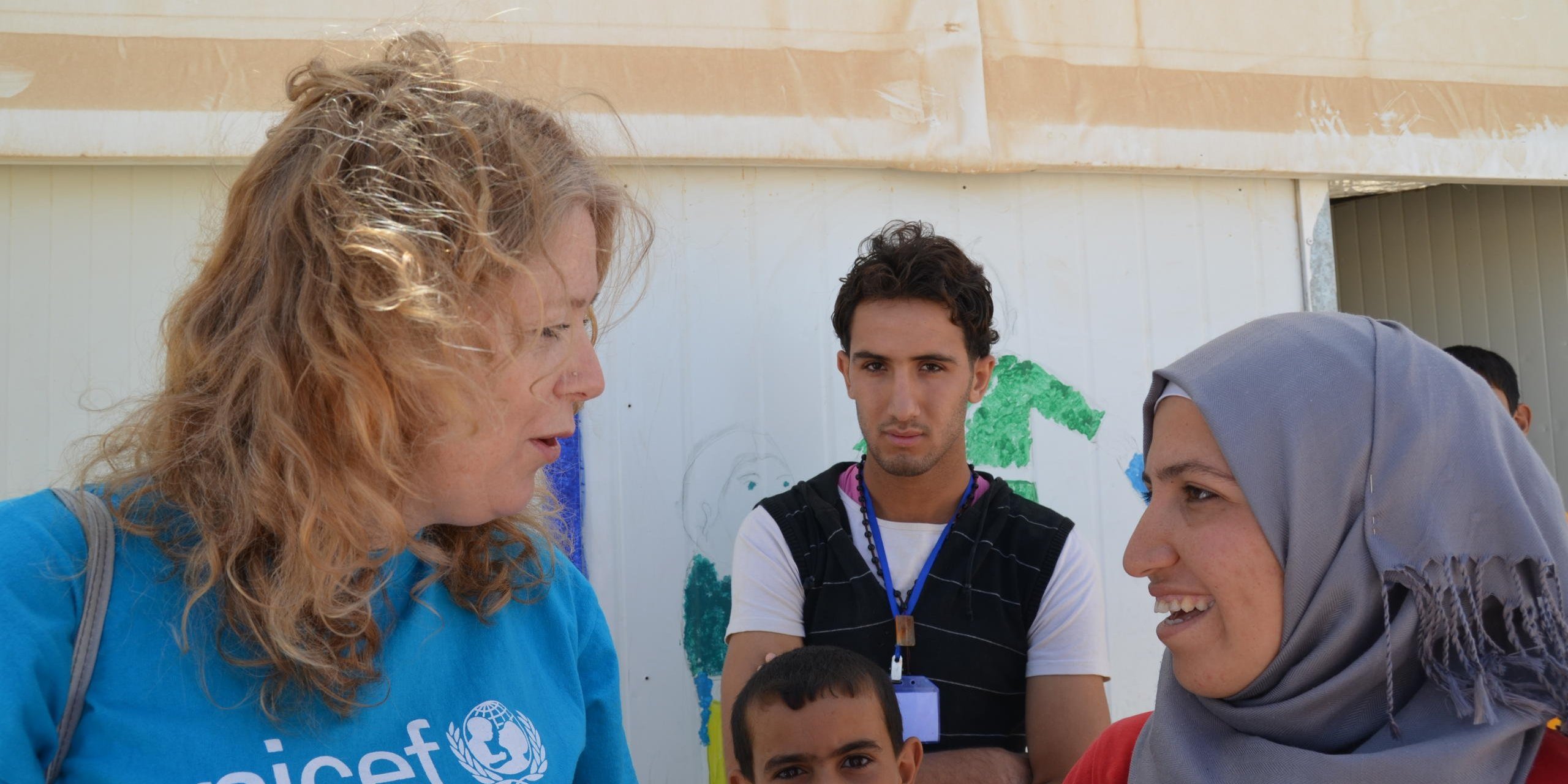
After seven years of civil war, more than 13 million people are in need of assistance. Still, humanitarian agencies trying to work in Syria face ongoing conflict and arbitrary restrictions on the movement of personnel and relief supplies. Limited implementation capacity and funding gaps also impede the response, and the fact that some of the response is organised cross-border from neighbouring Turkey and Jordan makes coordination difficult. Some NGOs also operate from Lebanon and Iraq, crossing into Syria.
Access has remained a continuous challenge for NORCAP. We have received a number of requests for experts to work inside Syria, but we have struggled to obtain visas for humanitarian workers and only managed to get one deployee in during 2017. To work around the access challenges, we sent six experts to work on the cross-border response from Gaziantep in Turkey and Amman in Jordan.
Different perspectives
Many Syrians have had to flee several times and live in fear of mortar bombardments, airstrikes, chemical attacks and gunfire. Grave violations of international humanitarian and human rights law have been perpetrated in many areas, giving rise to a range of protection concerns. Exposure to one risk increases vulnerability to others. The long-running conflict has also weakened usual protection mechanisms such as social and family networks and community-based structures. Ultimately Syria needs a political solution to end its conflict, until then protecting civilians will remain a key challenge.
ProCap expert Michelle Berg was deployed to OCHA in Amman in 2017 to draft a protection strategy for the Whole of Syria response's Strategic Steering Group (SSG). The main purpose of the SSG protection strategy was to mobilise a comprehensive, system-wide and multi-sector effort to respond to the most serious protection risks facing affected populations. This was a challenging task for Berg.
"The different locations from which the response is delivered (Jordan, Turkey, Syria) have very different perspectives of the situation, problems and protection issues, depending on which side of the conflict they operate in, and which parties to the conflict control the territory in which they operate. This means there were very different ideas about the focus of the strategy," she says.
Berg worked to merge these considerations and agree on protection priorities for the humanitarian response, a complicated task given the over-arching political issues that inhibit humanitarian response in the region. The Strategic Steering Group adopted the final strategy in August.

Improving child protection
Child protection expert Gunn Mariann Aase was deployed to UNICEF Regional Office in Jordan to support the Whole of Syria child protection area of responsibility. She contributed to strengthening monitoring practices and generating regular and reliable data in Syria, Turkey and Jordan.
"This will give us a better picture and evidence base of what the main needs of girls and boys are, so we can adjust our activities. It will also look at the impact of psychosocial support interventions, as psychosocial distress remains a major issue for both children and caregivers in Syria" Aase says.
Children and adolescents make up more than 40 per cent of the people in need in Syria. The conflict continues to take a huge toll on the lives of children, who experience serious risks and violations of their rights on a daily basis.
"One of the main challenges was to work with partner staff remotely. The development of tools and procedures has taken much longer than anticipated, because the actors were based in different countries, communicating through email and Skype. The few times we managed to meet face-to face helped to create trust and kept focus on the process," Aase says.
Empowering field staff in cash programming
Despite the increasing use of cash transfer programming globally, the Grand Bargain commitment to scale up such interventions has yet to become a reality in Syria. Implementing partners inside the country do not have the skills and experience to develop and implement cash programming, and training them from abroad is difficult.
According to the CashCap expert Fe Kagahastian, even UN staff had limited capacity to manage cash programmes remotely despite four years of cross-border response. She was told it would be impossible to bring field workers out of Syria for training, but with the help of her colleagues at OCHA and the technical working group, she brought 19 Syrian staff to Turkey.
"This is the first event that has brought together field and remote programme staff face-to-face since the cross-border response kicked off in 2014", she says.
The training led to the establishment of a field coordination group and a communication platform. The field staff also committed to train other colleagues in Syria. However, it remains challenging to ensure that the knowledge is passed on to key field staff.
Kagahastian also advocated to highlight the potential use of cash transfers in reports on humanitarian needs.
"This is a work in progress, but has made people more aware of how cash needs to be more systematically considered in all phases of humanitarian response", she says.
*This story was first published in our NORCAP Annual report, 2017.


